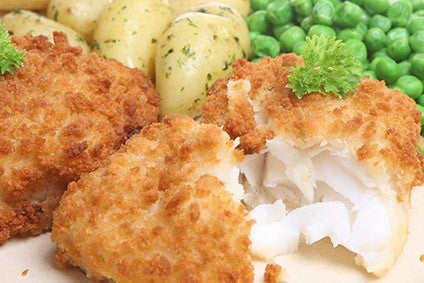
The UK government has announced it is to withdraw from an agreement that allows other countries to fish in British waters, in a move Environment Secretary and prominent pro-Brexit politician Michael Gove represented the country “taking back control”.
Today (3 July), UK ministers will trigger withdrawal from the London Fisheries Convention, which was signed in 1964 before the UK joined the EU. There will be a two-year withdrawal period.
The move was criticised by the Irish government as “unwelcome and unhelpful”. Michel Barnier, who is leading the EU’s negotiating team in the bloc’s talks with the UK over the country’s departure from the bloc, claimed the end of the convention would make no difference to fishing policy.

Discover B2B Marketing That Performs
Combine business intelligence and editorial excellence to reach engaged professionals across 36 leading media platforms.
UK denunciation of London Convention=no change: EU law/Common Fisheries Policy had superseded it. EU 27 interests=my priority for negs
— Michel Barnier (@MichelBarnier) July 2, 2017
The London Fisheries Convetnion allows ships from five EU countries – Germany, Ireland, the Netherlands, France and Belgium – to fish within six and 12 nautical miles of the UK’s coastline. This has been in place alongside the EU’s Common Fisheries Policy, which permits all European countries access between 12 and 200 nautical miles of the UK, and stipulates quotas for how much fish each country can catch.
Pulling out of the London Fisheries Convetnion will mean UK ships will also lose the right to fish in waters six to 12 nautical miles from the shores of other countries.

US Tariffs are shifting - will you react or anticipate?
Don’t let policy changes catch you off guard. Stay proactive with real-time data and expert analysis.
By GlobalData“Leaving the London Fisheries Convention is an important moment as we take back control of our fishing policy,” Gove insisted. “It means for the first time in more than fifty years we will be able to decide who can access our waters.” He described the move as an “historic first step” towards building a new fishing policy, and one which would lead to “a more competitive, profitable and sustainable industry for the whole of the UK”.
Barrie Deas, chief executive of the National Federation of Fishermen’s Organisations, welcomed the news. “This is …an important part of establishing the UK as an independent coastal state with sovereignty over its own exclusive economic zone,” he said. “It is about ensuring that fisherman use the right fishing gear, that fishing takes place at levels that maintain sustainable stocks and that we pioneer ways to monitor what is happening at sea in order to understand the impact of fishing. Leaving the EU means we could get these things right, but we still need to cooperate with our neighbours as fish do not recognise lines on a map.”
There were more than 6,000 fishing trawlers in the UK industry in 2015, landing 708,000 tonnes of fish worth GBP775m. The fisheries sector contributes GBP1.3 billion to the economy, employing 34,600 people. An estimated 10,000 tonnes of fish, including mackerel and herring, was caught by vessels from the five countries in the Convention in 2015 within 12 nautical miles of the British coast – worth an estimated GBP17m.
However, Will McCallum, Greenpeace UK’s head of oceans, warned pulling out of the London Fisheries Convention would not necessarily bring about a better future for the industry.
“For years, successive UK governments have blamed Brussels for their own failure to support the small-scale, sustainable fishers who are the backbone of our fishing fleet,” McCallum said. “If Brexit is to herald a better future for our fishers, the new Environment Secretary must keep the 2015 Conservative Party manifesto commitment to re-balance fishing quotas in favour of small-scale, specific locally-based fishing communities.”
Ireland’s Minister for Agriculture, Food and the Marine, Michael Creed, was unimpressed by the move. “Today’s announcement by the UK Government is unwelcome and unhelpful,” he said. “It is a part of Brexit and will be considered by the EU 27 member states and the Barnier team when the negotiations commence. Brexit poses very serious challenges to the seafood sector and this announcement will form part of the negotiations.”





